Greater Change
Making a Greater Change to alleviate homelessness
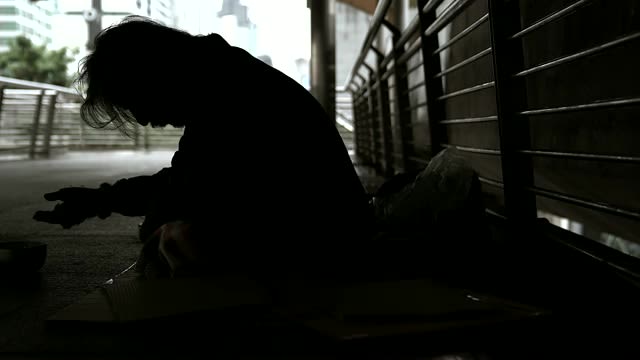
How two University of Oxford students started a social venture to create a smarter way to donate money and help people out of homelessness.
When two University of Oxford students started to get used to life in the city, they could not help but notice a very visible problem. Every time they walked down the street, they were taken aback by people sleeping rough on the streets.
Jonathan Tan and Alex McCallion realised that they needed to delve deeper into the issue affecting every UK city. Consequently, they began assisting at Aspire, a homeless charity in Oxford. While there, they posed what seemed like naïve questions to more experienced volunteers. These enquiries unveiled the complex nature of homelessness.
‘We just couldn’t figure out why homelessness exists to such a severe extent when the UK is the sixth wealthiest country in the world,’ Jonathan Tan remembers.
‘We wanted to know why people get stuck in temporary accommodation for years, when it's really meant to be a six to 12 month stepping stone. We were seeing people who would be in a hostel, then back on the streets, and then back in a hostel. This revolving door can go on for some people for more than a decade.’
When the volunteer students asked these questions, a common answer emerged: many individuals struggled to gather funds to escape homelessness or break the cycle of sofa surfing. Without a deposit for an apartment or the money for job training, they were trapped in a repetitive cycle; moving between 'temporary' accommodation, sleeping on the streets, and seeking refuge in hostels.
The root cause was clear: people need a financial boost to overcome homelessness. The pair wondered if providing specific financial aid might be more effective than continuously funding temporary accommodation which often seemed to last indefinitely.
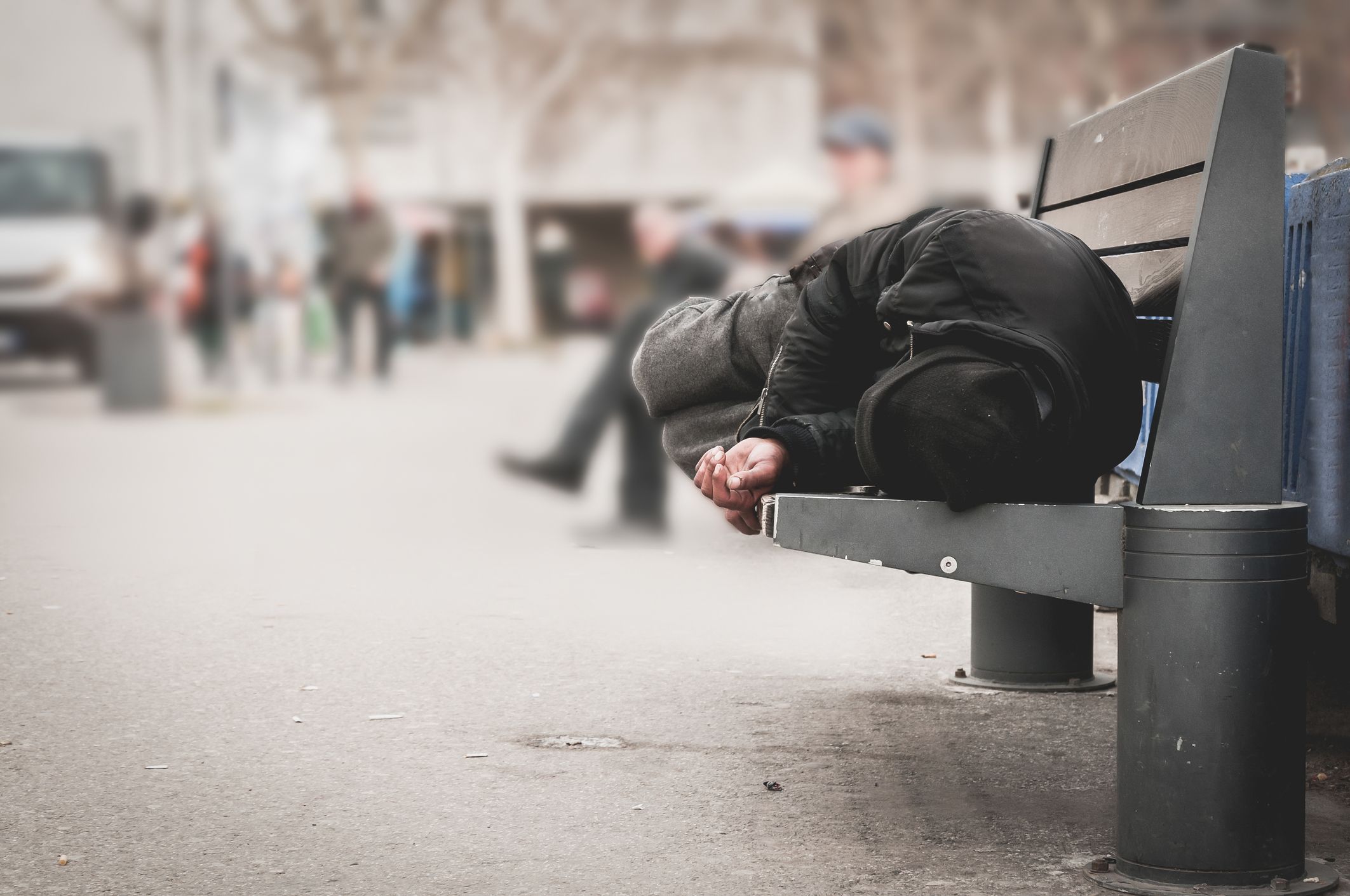
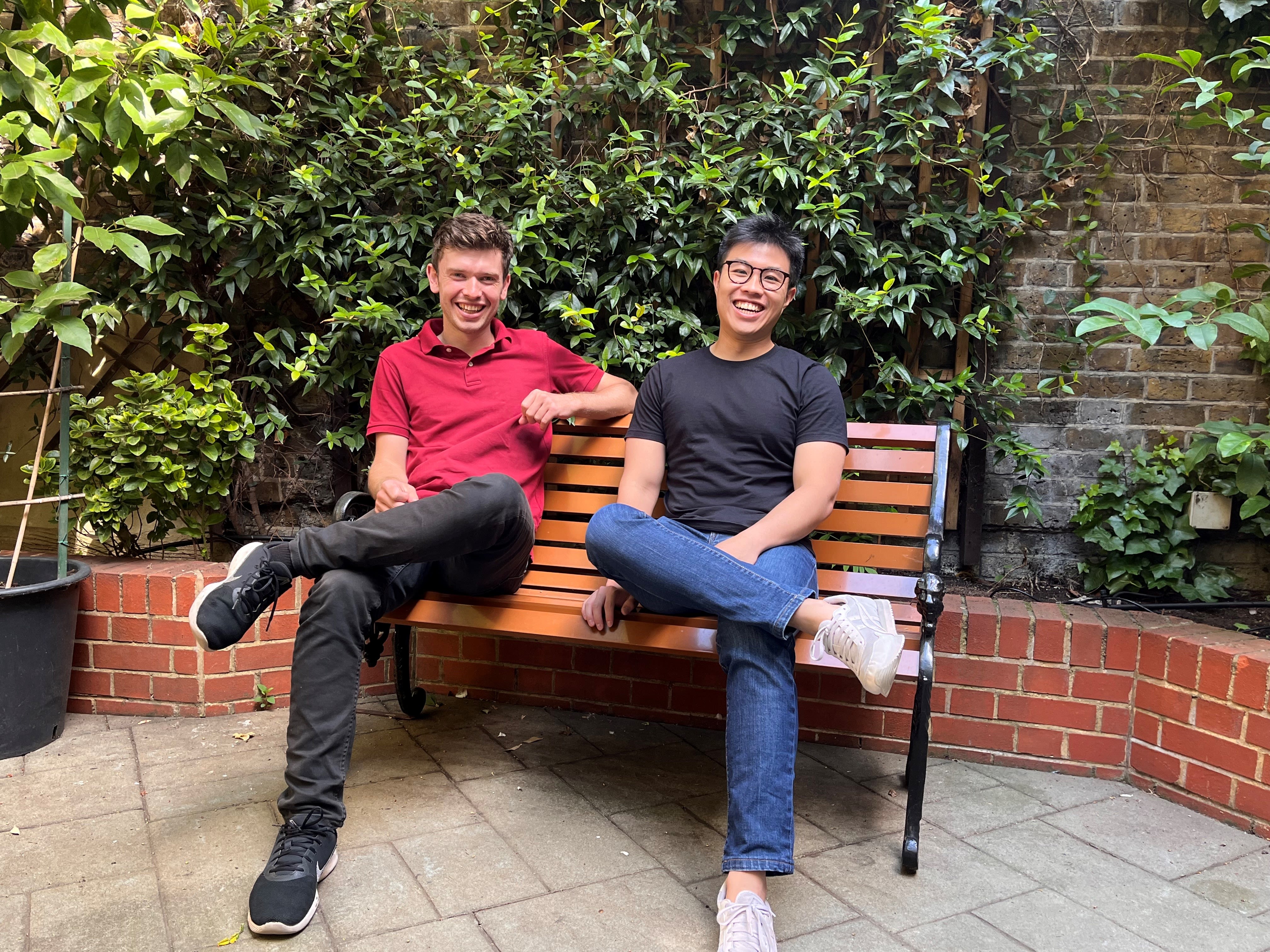
Alex McCallion and Jonathan Tan
Alex McCallion and Jonathan Tan
A grant to change lives
The idea for Greater Change was born. If homeless people could be given help to break the cycle, they could get out of homelessness for a fraction of what it costs a council to keep them in ‘temporary’ accommodation.
The pair recognised that a lack of cash at a particular moment was the key reason why many individuals were unable to move out of homelessness. To tackle this, they built a model that empowers local caseworkers to identify individuals who could significantly benefit from a one-off financial grant.
This set-up not only facilitates direct donations from the public, who can be confident that 100% of their donations go to those most in need, but also underscores the importance and effectiveness of cash transfers as a means to assist individuals in making pivotal steps towards rebuilding their lives.
The public and corporate sponsors have responded well. Since its launch in 2018, the platform has helped more than 790 people and is forecast to reach its thousandth client shortly.
‘We’ve built Greater Change to be a platform to fundraise for these individuals and give them the lump sum boost they need to help them overcome the barriers on the pathway out of homelessness. We're really not talking that much money at all, on average it’s a lump sum of about £850,’ Tan says.
‘It's personalised to the individual. We ask them how they want to get out of homelessness, so it's giving them the dignity of choice. We don't duplicate existing support work. We partner with great local charities, like Aspire in Oxford. They continue to deliver the frontline casework and then refer their people to us, so we can give financial planning support and a grant.’
The partnership model has evolved to include several councils who take a joined-up approach to homelessness. By doing this, councils can save up to £20,000 per person for a year by preventing the need for long-term temporary accommodation.
Just as homeless people are individuals, so too are their needs. Often the financial help is a deposit on a flat but it may also be linked to a vocation.
Greater Change recently helped someone who needed forklift truck driving lessons so that he could get the certification required to keep working. Similarly, it gave financial aid to a person who needed support stockings to continue working as a security guard, a role that requires hours of standing and was causing considerable pain.

Social ventures at Oxford
When Tan and McAllion decided to launch Greater Change, they needed advice on how to get started.
Oxford University Innovation (OUI) is the commercialisation arm of the University of Oxford and is well-known for setting up science and technology companies based on intellectual property (IP) developed at the University. However, OUI is increasingly supporting the creation of social ventures in any field, even where there is no IP involved. Dr Philippa Christoforou, Social Ventures Lead at OUI, explains.
“We're passionate at OUI about supporting social ventures that have an impact in the way they help people, place and communities,’ she says.
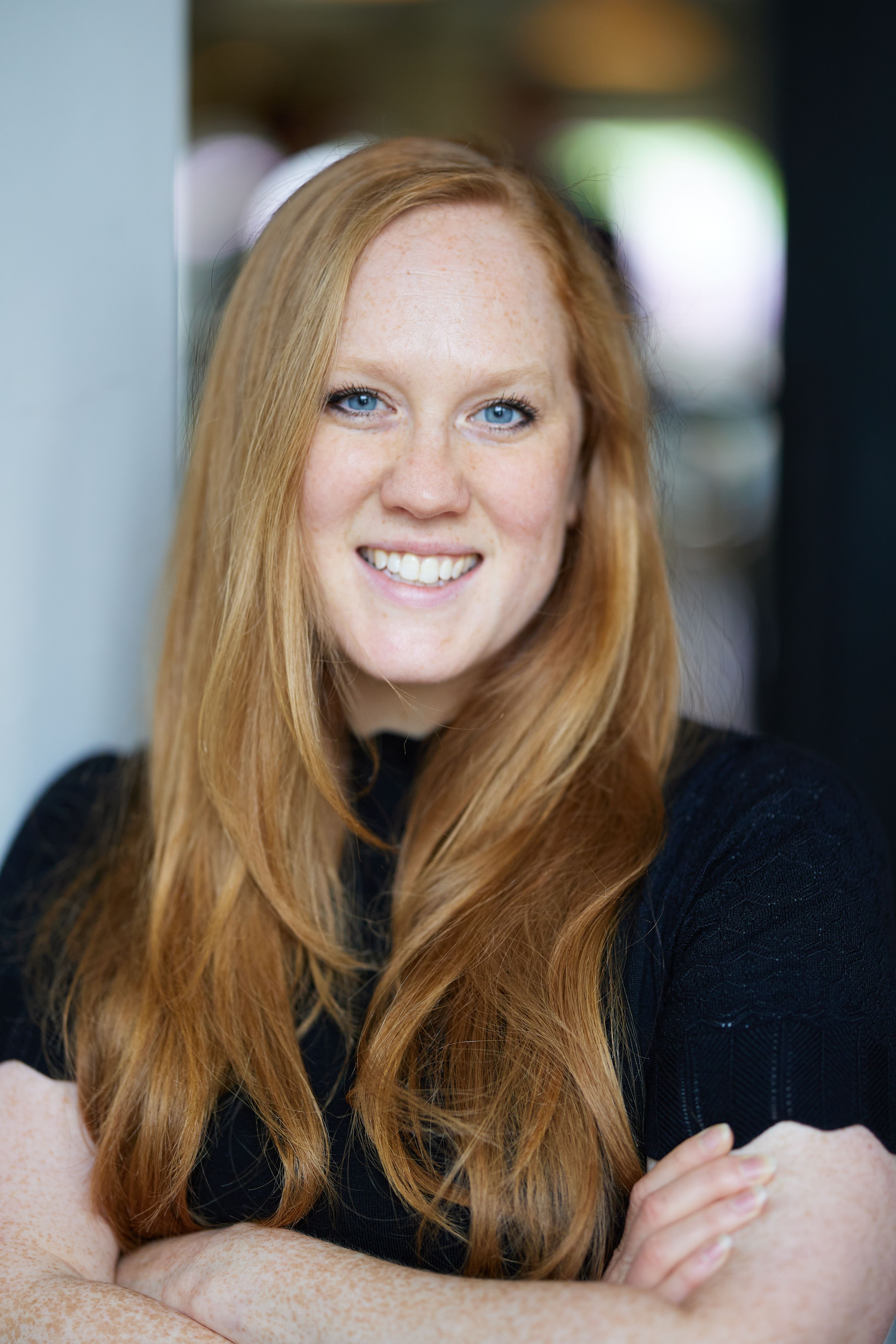
Dr Philippa Christoforou
Dr Philippa Christoforou
‘Social ventures are a crucial part of the University of Oxford’s mission to deliver beneficial outcomes for society at a local, national and global scale. We have a team with expertise who provide advice about the best route for a social venture, and we have a really good ecosystem that we’re continually building up for social entrepreneurs to tap into.’
This support from OUI and its wider network meant that the Greater Change co-founders were able to join its Incubator programme to discuss their idea and get feedback from a variety of experts.
They were also given access to the University’s OxReach crowdfunding platform. They were seeking £30,000 to launch Greater Change at the end of 2017, and instead raised £33.000. This meant they had the funding in place to launch the service in 2018, backed up by the professional help made available through OUI.
‘We helped Greater Change raise funding as well as speak to lawyers to figure out what the legal structure should be,’ Christoforou explains. ‘This led to them forming a social enterprise with a side charity to enable them to take public donations with gift aid.'
As with all its ventures, OUI helped Greater Change set up a company account and has provided ongoing support. The Greater Change team have regular contact with Dr Christoforou, and have an OUI representative on its board, both of whom are available to discuss the progress of the venture and whether contacts within the OUI network could help further.
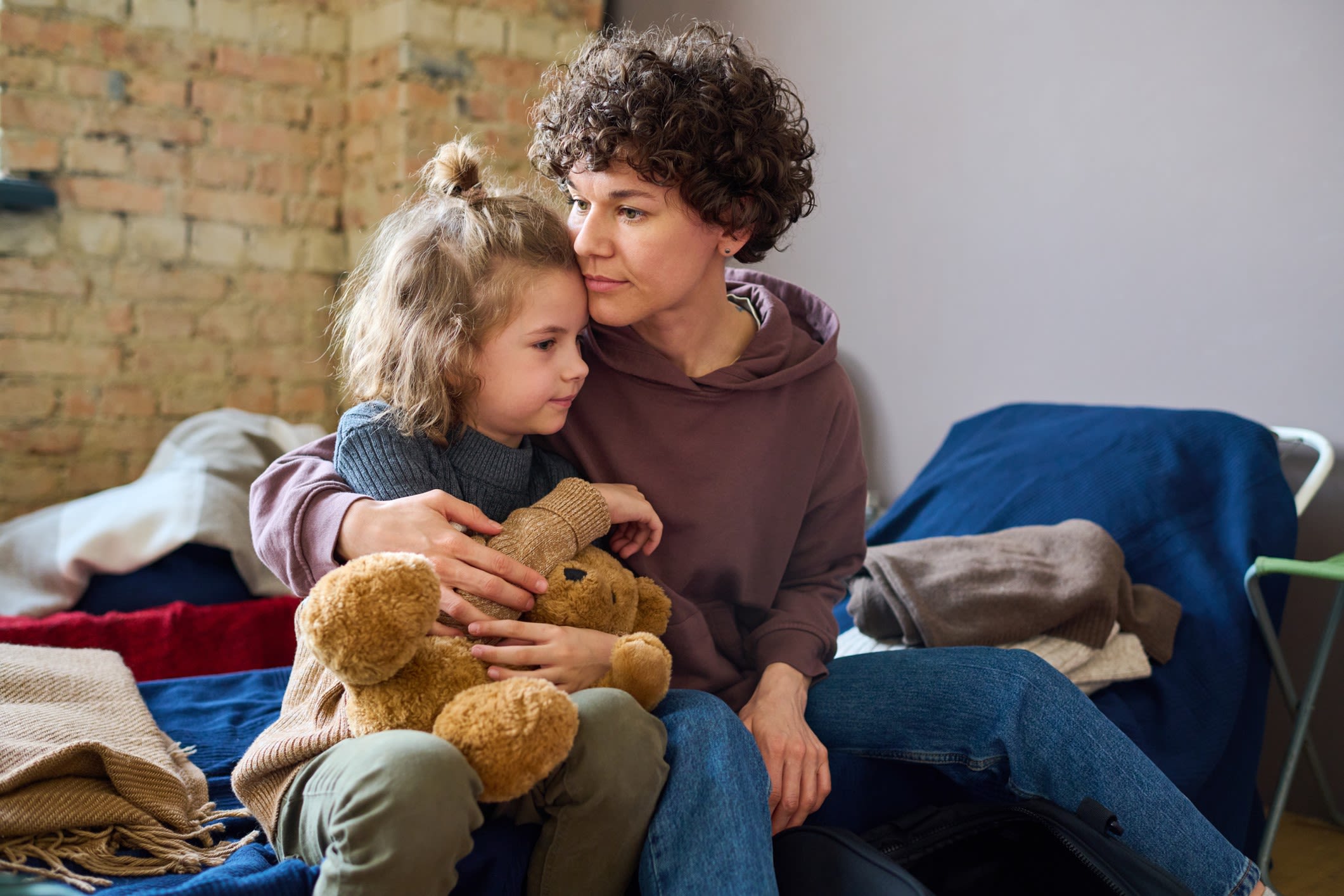
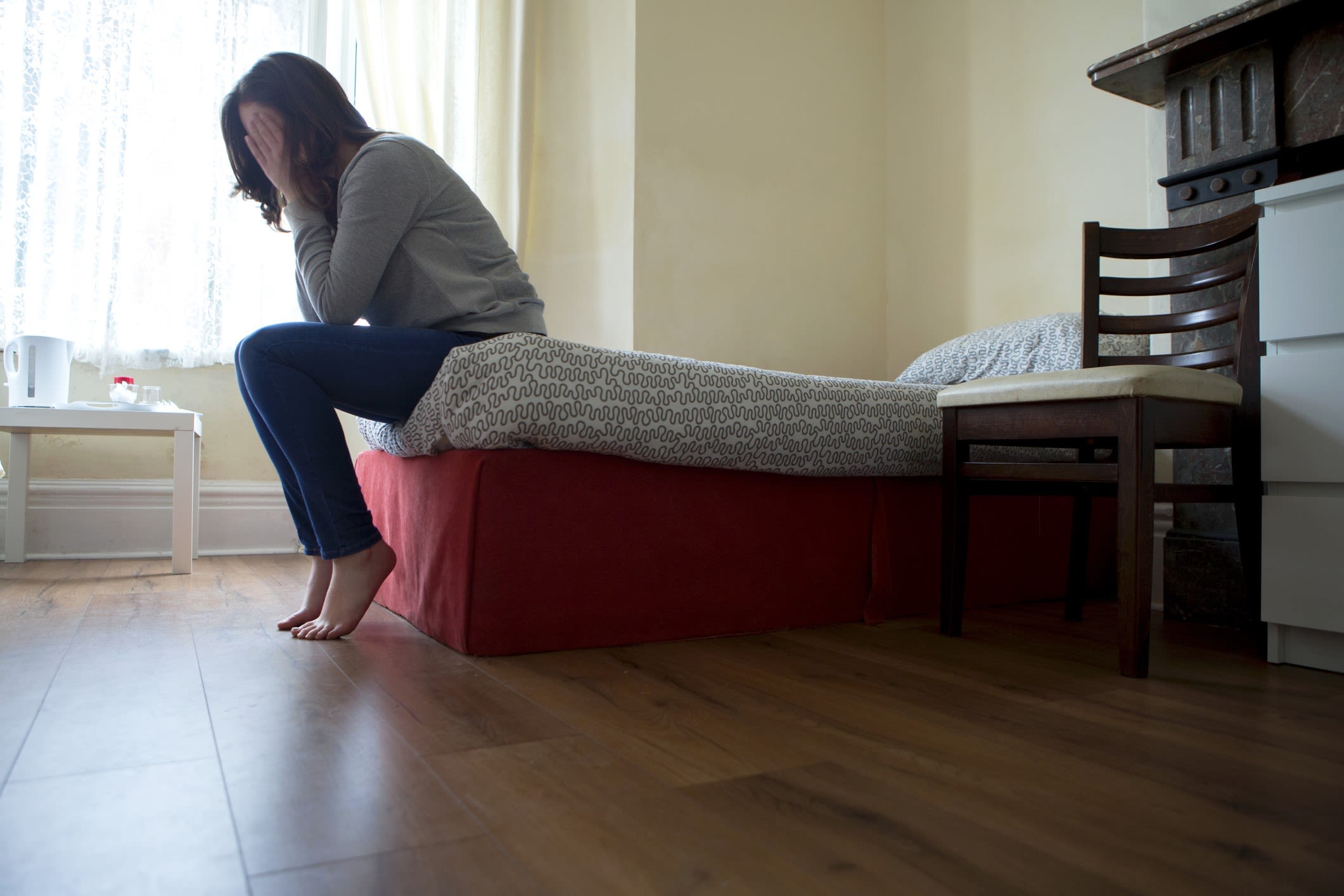
Ending the homelessness cycle
Greater Change is hoping to raise awareness that homelessness runs much deeper than people living on the streets. Estimates vary but Tan believes that of the quarter of a million people who are experiencing homelessness at any one time, only around one in five will be visible on the streets. The majority will be sofa surfing or living in temporary accommodation.
‘If you ask a child to draw a picture of someone who is homeless, you get a picture of an old man with a beard in a shop doorway,’ he says.
‘To be honest, that’s probably what most adults think too but the reality is different. The majority are sleeping at a friend’s house, or locked into temporary accommodation that isn’t very temporary. Many people aren’t able to access the offer of a hostel place because hostels don’t tend to take dogs, and a dog is often a homeless person’s best friend. Or somebody may have had a bad experience in a hostel previously and so they’re cautious about going back. That is why it’s so important to help people get out of this cycle.’
Greater Change records show that it has contributed to housing 84% of the people it has supported, as well as helping one in two with employment prospects. This is not only changing lives, but is estimated to have saved local councils more than £21m through reduced support and temporary accommodation costs.
This is why Greater Change is branching out to form partnerships with a growing number of local councils to co-fund one-off financial grants that will help individuals put a roof over their heads. Helping people to get a home not only saves on hostel costs, it also improves health and wellbeing, reducing the need for support with health conditions.
The help goes beyond financial gain. One person helped by Greater Change, called Dale, reveals that by having a home he is now able to maintain contact with his son. He credits Greater Change with ‘giving me my dignity back’.
‘It’s amazing not sleeping in a tent and feeling like life is worth living now,’ he says. ‘I get to have my son over and I have started a college course, so I’ll hopefully have a job soon after.’
For someone like Jane Jones, it was more a case of making the ‘shell’ she had been offered to live in feel like more of a home. ‘I was starting from scratch,’ she says. ‘The money from Greater Change went to a washing machine and blinds for the window. It was a smooth process because my support worker helped me with my application. The money made moving a lot more comfortable and I could wash my clothes and close my blinds.’
Helping people end the cycle of homelessness is more important now than ever, Tan warns. The cost-of-living crisis has already seen a rise in the number of people experiencing homelessness. More than a million people could potentially be at risk as a prolonged period of inflation and higher rents pushes families to their financial limit.
Rather than keep an increasing group of people on an endless loop of rough sleeping and temporary accommodation, it has never been more important to break the cycle and help people to move on with their lives. Greater Change is showing that it is part of the solution to this growing challenge and has made a significant impact since its creation only a few years ago.

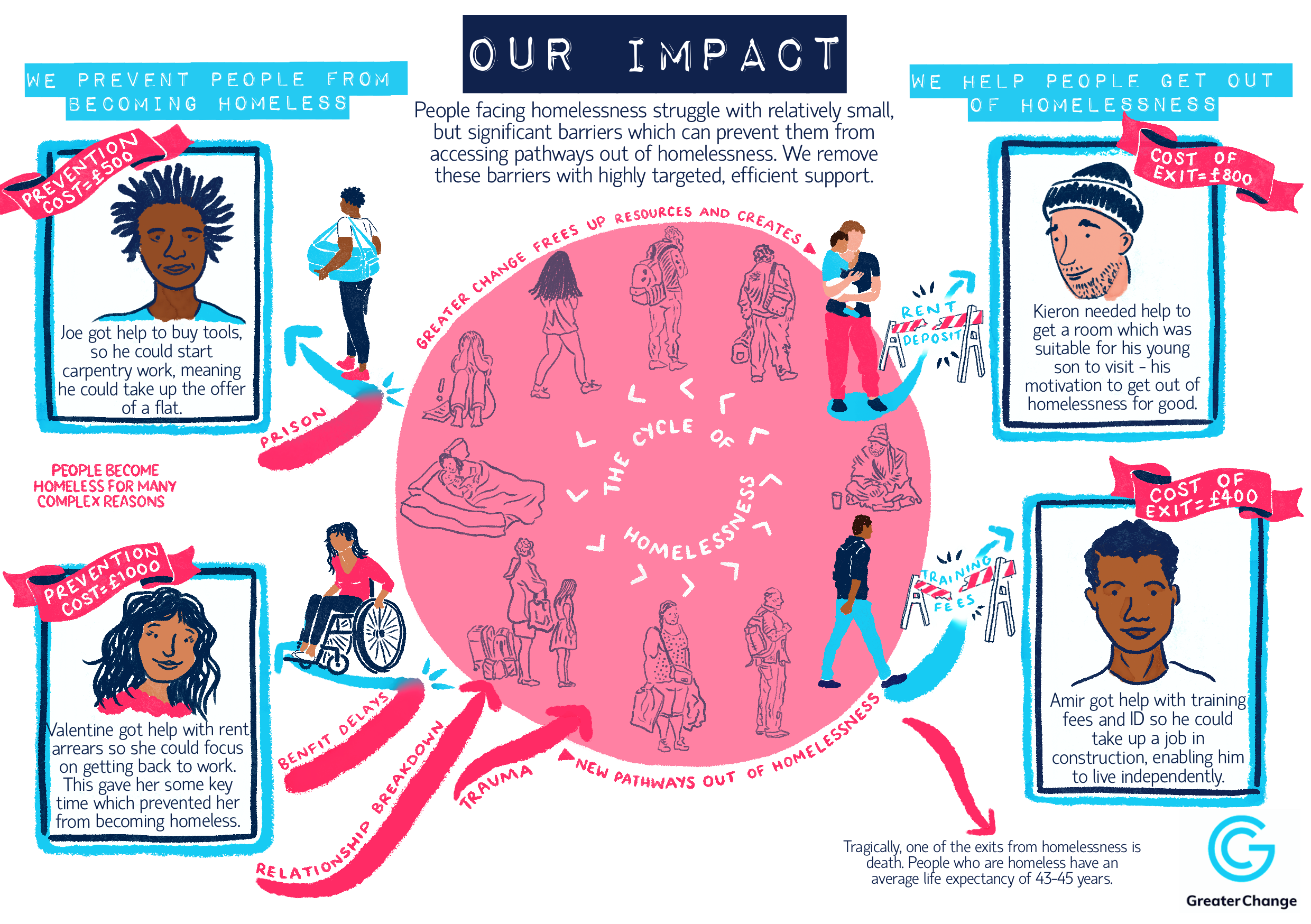
18 social ventures
have been created at the University of Oxford
13 UN Sustainable Development Goals
are being supported by Oxford's social ventures

